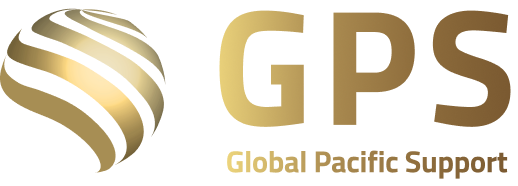The medical industry is experiencing a revolution driven by advanced technologies that enhance patient care, streamline operations, and improve outcomes. This blog explores the key innovations transforming healthcare, their benefits, and best practices for integrating these technologies in medical settings.
The Evolving Landscape of the Medical Industry
As healthcare demands grow, medical providers face challenges such as increasing patient loads, complex administrative tasks, and the need for personalized care. Advanced technologies offer solutions to these challenges, enabling providers to deliver high-quality, efficient, and patient-centered services.
Key Technologies Enhancing the Medical Industry
- TelemedicineOverview: Telemedicine uses digital communication tools to provide remote clinical services, including consultations, follow-ups, and patient monitoring.Benefits:
- Accessibility: Increases access to healthcare services, especially for rural or underserved populations.
- Convenience: Allows patients to receive care from the comfort of their homes.
- Efficiency: Reduces wait times and streamlines the healthcare delivery process.
- Electronic Health Records (EHRs)Overview: EHR systems digitally store patients’ medical histories, test results, treatment plans, and other relevant data.Benefits:
- Accuracy: Reduces errors by providing accurate and up-to-date patient information.
- Coordination: Enhances care coordination among healthcare providers.
- Data Security: Ensures secure storage and access to sensitive patient information.
- Artificial Intelligence and Machine LearningOverview: AI and machine learning algorithms analyze large datasets to assist in diagnostics, treatment planning, and predictive analytics.Benefits:
- Precision: Improves diagnostic accuracy and treatment outcomes.
- Efficiency: Automates routine tasks and data analysis, freeing up time for healthcare professionals.
- Personalization: Enables personalized treatment plans based on individual patient data.
- Wearable Health DevicesOverview: Wearable devices, such as smartwatches and fitness trackers, monitor vital signs and other health metrics in real-time.Benefits:
- Continuous Monitoring: Provides continuous health monitoring, alerting patients and providers to potential issues.
- Patient Engagement: Encourages patients to actively participate in their health management.
- Data Collection: Collects valuable data for preventive care and research.
- Robotic SurgeryOverview: Robotic-assisted surgery uses robotic systems to perform minimally invasive procedures with high precision.Benefits:
- Precision: Enhances surgical precision and reduces the risk of complications.
- Recovery: Minimally invasive techniques lead to faster recovery times and less pain.
- Scalability: Expands the range of procedures that can be performed minimally invasively.
The Strategic Advantage of Advanced Technology in Healthcare
- Improved Patient CareAdvanced technologies enable more accurate diagnoses, personalized treatments, and better patient monitoring, leading to improved patient outcomes.
- Operational EfficiencyAutomation and digital tools streamline administrative and clinical workflows, reducing errors and improving efficiency.
- Enhanced Patient EngagementTechnologies like telemedicine and wearable devices engage patients in their own care, promoting better adherence to treatment plans.
- Data-Driven InsightsHealthcare providers can leverage data analytics to gain insights into patient populations, treatment efficacy, and operational performance.
- Cost ReductionEfficient resource utilization, reduced hospital stays, and minimized errors contribute to overall cost savings in healthcare delivery.
Case Studies: Success Stories with Advanced Technology in Healthcare
Case Study 1: Expanded Access to Care with Telemedicine A healthcare network implemented telemedicine services, allowing patients in remote areas to access specialist consultations. This led to a 50% increase in patient access to specialist care and a significant reduction in travel time and costs for patients.
Case Study 2: Enhanced Diagnostics with AI A hospital integrated AI-based diagnostic tools for analyzing radiology images. The AI system improved diagnostic accuracy by 30%, helping clinicians detect early-stage diseases more effectively.
Case Study 3: Improved Surgical Outcomes with Robotic Surgery A medical center adopted robotic-assisted surgery for complex procedures. The center reported a 20% reduction in complication rates and a 25% decrease in patient recovery times, enhancing overall patient outcomes.
Implementing Advanced Technology in the Medical Industry: Best Practices
- Define Clear ObjectivesIdentify specific goals for integrating technology, such as improving patient care or increasing operational efficiency.
- Choose the Right Technology SolutionsSelect technologies that are evidence-based and have demonstrated success in similar medical settings.
- Train Healthcare ProfessionalsProvide comprehensive training to healthcare providers on using new technologies and understanding their benefits.
- Ensure Data Privacy and SecurityImplement robust data protection measures to safeguard patient information and comply with healthcare regulations.
- Monitor and Evaluate PerformanceRegularly assess the performance of implemented technologies using key performance indicators (KPIs) and adjust strategies as needed.

